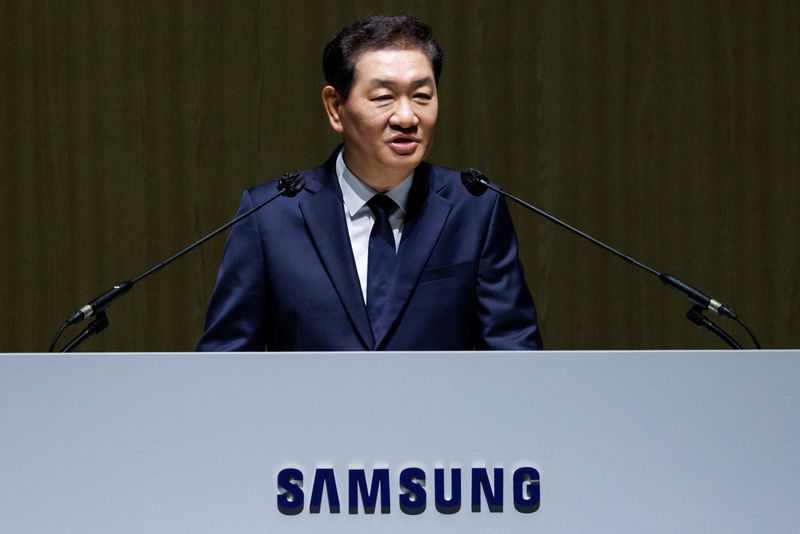GM Appoints First Chief AI Officer from Google to Drive Innovation
 |
| Pioneering AI Integration in Automotive Technology |
General Motors (GM), a leading name in the American automotive industry, has taken a significant step toward embracing artificial intelligence by appointing its inaugural Chief Artificial Intelligence Officer (CAIO). This move underscores GM's commitment to leveraging cutting-edge AI technology trends to enhance its electric vehicles, internal combustion engines, and autonomous driving systems. The newly appointed CAIO, Barak Turovsky, aged 49, brings a wealth of expertise from his previous roles at tech giants Cisco and Google, positioning him as a pivotal figure in steering GM toward a future dominated by artificial intelligence in automotive manufacturing. Announced on March 3, 2025, this strategic hire reflects a broader trend among global companies racing to bolster their AI capabilities with top-tier talent in high-ranking roles.
Barak Turovsky’s appointment as GM’s Chief AI Officer marks a turning point for the automaker as it seeks to integrate artificial intelligence solutions across its operations. Turovsky, who most recently led the AI division at Cisco, has a robust background that includes a decade at Google, where he spearheaded advancements in AI-driven technologies. During his tenure at Google, he played a key role in embedding machine learning and artificial intelligence into products like Google Search, Translate, Ads, and Cloud, earning him a reputation as an innovator in scalable AI applications. At GM, he joins the software and services engineering team, reporting directly to Senior Vice President David Richardson. His responsibilities encompass crafting a comprehensive AI strategy, embedding AI software functionalities into GM’s diverse vehicle lineup, and driving transformative projects that enhance product quality, streamline manufacturing processes, and elevate the customer experience. This appointment aligns with GM’s vision of artificial intelligence as a cornerstone of its next-generation mobility solutions.
GM’s leadership views AI as indispensable to its future, particularly in advancing electric vehicle technology, optimizing internal combustion engine performance, and pioneering self-driving car innovations. David Richardson emphasized this perspective in a statement, noting that AI is a critical element in shaping GM’s offerings across electric vehicles, traditional engines, and autonomous driving systems. He highlighted Turovsky’s expertise as a catalyst for accelerating artificial intelligence innovations at GM, predicting enhancements in product development, operational efficiency, and customer satisfaction. Already, GM has been deploying AI in practical ways, such as selecting optimal locations for electric vehicle charging stations, refining dealership vehicle ordering processes, and improving manufacturing workflows. Turovsky’s leadership is expected to amplify these efforts, bringing sophisticated AI-driven insights to scale these initiatives further and explore new applications across the company’s ecosystem.
The broader context of this appointment reveals GM’s proactive approach to staying competitive in an industry increasingly defined by software and AI integration. In recent years, the automaker has strategically onboarded tech industry veterans to fortify its technological prowess. For instance, in 2024, GM promoted former Apple executive David Richardson and Baris Cetinok to oversee its software division, signaling a shift toward a tech-centric leadership model. Turovsky’s addition builds on this momentum, bringing specialized AI expertise to a company eager to redefine automotive innovation. This trend mirrors a wider movement among corporations worldwide, where roles like Chief AI Officer are becoming commonplace as businesses race to harness artificial intelligence for competitive advantage. GM’s investment in such talent underscores its ambition to lead the charge in AI-powered automotive advancements.
Turovsky’s influence will likely extend to several ongoing GM initiatives that showcase the transformative potential of AI in the automotive sector. One notable example is the use of geospatial AI to analyze electric vehicle adoption trends and pinpoint ideal charging station locations, a project developed in collaboration with Pilot Flying J. Another application involves predictive analytics in manufacturing, where AI assesses historical and real-time data from robotic systems to preempt equipment failures and minimize downtime. GM also employs AI to optimize travel routes for electric vehicle drivers, alleviating range anxiety through intelligent path planning powered by gradient boosting machines and telematics data. In motorsports, AI enhances race strategies by analyzing vehicle performance and track conditions in real time, while in urban navigation, continuous learning AI systems are advancing GM’s pursuit of fully autonomous driving through its Cruise subsidiary. Additionally, partnerships with Google Cloud have enabled conversational AI integrations in vehicles, such as the OnStar virtual assistant, and a collaboration with Mitra Chem, backed by a 60 million dollar investment, is accelerating AI-driven battery material development.
This strategic hire not only reinforces GM’s commitment to artificial intelligence in automotive manufacturing but also positions the company to deliver greater value to its customers and stakeholders. By integrating Turovsky’s deep knowledge of AI technology trends with GM’s existing efforts, the automaker is poised to enhance its electric vehicle ecosystem, refine its manufacturing precision, and push the boundaries of autonomous driving technology. His proven track record of translating complex AI concepts into practical, customer-focused solutions suggests that GM’s vehicles and services will see significant upgrades in the coming years. As the automotive industry continues its rapid evolution, GM’s decision to appoint a seasoned AI leader like Turovsky signals its readiness to embrace the future of mobility, where artificial intelligence plays a starring role in driving innovation and sustainability.



Comments
Post a Comment